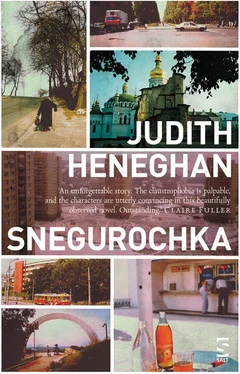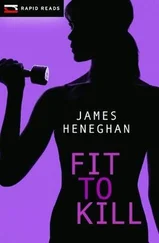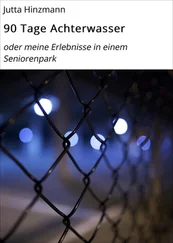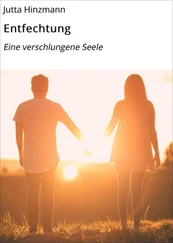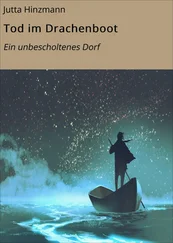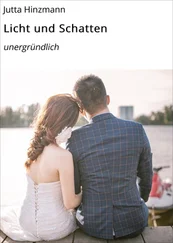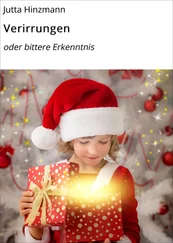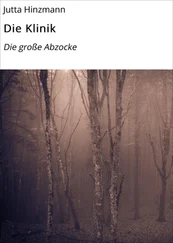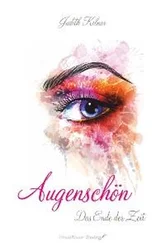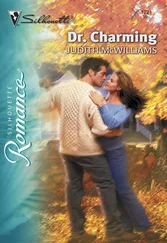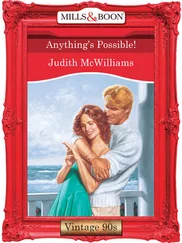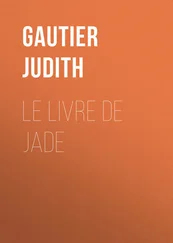All the way home, Rachel leaned her forehead against the window to cool her burning skin. She remembered the way her father lay down in the sand, frowning with concentration as he cupped his hands, then smiling at her as the fire took hold, his body shielding it from the wind’s worst excesses. She remembered the way the flames licked and leaned, and she tried not to blink.
Six months later, Rachel’s father was gone. This didn’t surprise her. At Poppit Sands she’d learned that people could be more than one thing.
* * *
On their last morning in Yalta, while Rachel and Lucas are eating breakfast in the sanatorium’s cavernous circular restaurant, Lucas is asked to take a call at the central reception desk.
It is Zoya.
‘Elena is dead,’ she says down the crackling, popping line. ‘Please tell Rachel. This morning. Stepan found her.’
‘Christ,’ says Lucas. Then, ‘What happened?’ He readjusts his voice, aware that the young woman behind the desk is listening. He thinks Zoya might have waited until they got back to Kiev.
‘A leak of some type in the apartment building. Down in the basement.’
‘Was it gas?’
‘It would seem so. The police have been there.’
‘Christ.’
‘Please tell Rachel. She will want to know.’
‘Sure – leave it with me.’
It is only when Lucas has replaced the receiver that he thinks of all the things he should have said, like how sorry he is, and will the apartment block be safe, and who the hell is Stepan.
* * *
‘That was Zoya,’ says Lucas, when he rejoins Rachel at their table. ‘Some bad news, I’m afraid.’ He frowns, unsure how his wife will react. ‘The old dezhornaya – Elena – has died.’
Rachel turns her head and looks out of the window, down past the tops of the ornamental yuccas and the oleander bushes of the formal courtyard gardens to the white marble paving below.
‘Rachel?’
‘How did it happen?’ She turns her head back to her husband, her thoughts separating, re-grouping. ‘Where was she found?’
‘Basement,’ says Lucas. ‘Do you think she did it herself? Someone called Stepan discovered her.’ He checks his watch. ‘It’s shocking news – I’m sorry. I know you’d become fond of her. Did she have any relatives?’
‘I don’t know,’ replies Rachel, her voice far off, like an echo. Then she changes her mind. ‘I heard she had a baby, but she lost it.’
* * *
When Rachel and Lucas return to Staronavodnitska Street there is nothing to show that a death has occurred. The basement door is shut, as is the door to the flat where Elena had been staying. All that time, thinks Rachel, she’d been so fearful of a fall or a push or a chance letting go from the balcony on the thirteenth floor until Elena had shown her how foolish she’d been. Perhaps Elena had always known the threat came from somewhere else.
She doesn’t find the package until the evening, as she puts Ivan to bed. It is tucked in the drawer between the nappies – a brown padded Jiffy bag, addressed to her in her mother’s insistent scrawl. When she looks inside she finds a circular pot of face cream. The silver lid gleams as she takes it out. Her mother has sent her a jar of Visibly Different. She sits down on the bed, rubs her thumb across the raised EA for Elizabeth Arden, then twists off the lid. It has been opened already; the surface bears the mark of someone else’s finger, but it doesn’t matter. The scent of her mother’s skin rises until once again Rachel is a nine-year-old girl, standing in the bathroom doorway of the bungalow, watching her mother dab small dots along her cheekbones, pulling at the slack folds beneath her jawline, her lips drawn tight to keep the cream out of her mouth, those fierce eyes in the mirror, angry with ageing, with her daughter, with herself.
Rachel puts the jar down and studies the package’s postmark – the fifth of December. Her mother sent it in time for Christmas. There is no card to accompany the gift, nothing for Ivan or Lucas. While the three of them have been in Yalta it has arrived here amongst the nappies.
‘Only for grown-ups,’ Rachel’s mother had scolded her.
Elena had a key. Lucas gave her a spare when Rachel was ill.
Truth flashes and shimmers like a fish in the reeds. Sometimes, if you’re lucky, you may grasp it.
* * *
‘Mum,’ says Rachel, when her mother answers the telephone.
‘Rachel – is that you?’
Rachel catches the notes of an advert’s upbeat jingle before her mother turns off the television. ‘Yes Mum. It’s Rachel. I’m coming home. On the third of September.’
‘I see. You are sure, this time.’ A pause. ‘I’ll have to make up the spare room…’ Her mother’s voice wavers with questions.
‘I got the face cream, Mum. It was delayed – in the post. But I’ve got it now.’
The line pops softly like a bronchial chest.
‘Well, it was meant for Christmas. The cold weather never did your skin any favours.’
‘Thanks Mum.’ Rachel, pressing the receiver to her ear, waits, and at last she hears the sigh that is not an ending, though it is a release.
‘I’ll make the bed up. And the cot – it’s still up in the attic. For Ivan. We can put him in your old cot.’
* * *
The next day Rachel carries Ivan downstairs on her hip and goes outside in search of Stepan. She can’t find him at first, but eventually she spots him squatting in the long grass near the fence by the military academy. He is red-eyed, still dressed in the football shorts and grubby plastic flip flops he’d been wearing the last time she saw him. He doesn’t move when she approaches.
‘You found Elena in the basement,’ she says, at a loss for a better way to begin.
Stepan looks down. He is scratching in the dirt with his finger.
‘That must have been awful for you,’ she adds.
Silence.
‘Can you tell me what happened?’ Ivan wriggles in Rachel’s arms. She sets him down, feet on the ground and grips his hand to keep him steady. ‘Stepan?’
Now she sees that Stepan’s shoulders are heaving. He makes a high-pitched sound through clenched lips; he buries his head between his knees and his child-sized t-shirt rides up to reveal an inflamed patch of eczema across his ribs. His distress is so pitiful, so raw, that for the first time she aches to put her arms around him, this troubled youth who has no one to comfort him.
‘Where is your – uncle?’ she asks. ‘That man you live with?’ She reaches forward and rests her free hand lightly on his wrist.
‘Not uncle,’ he mutters, pulling back his arm and wiping the snot from his nostrils. ‘You not my mum. Go leave. I don’t know why Mykola think you special.’
‘What?’ Rachel has been worrying about how to raise the subject of Mykola. She isn’t expecting Stepan to do it first.
Stepan makes a strange sound like a hiccup or a bark. ‘Elena, she give me money, then Mykola, he give me more. But I tell you, Elena is better.’ He rocks backwards, then knocks his head against his knees. ‘She say you not special.’
Rachel squats down, still holding Ivan’s hand. Stepan’s words are muffled, difficult to hear, though she feels them like a stone thrown at her face. All the same, she knows what she must ask.
‘Stepan, tell me, does Mykola know Elena has died? Was he there when it happened? I think he’s got something to do with it. You heard them that day in the car…’
‘You not my mum. Go your mum. Go away.’
Ivan, sensing an opportunity, lurches towards the boy, who has curled up like a woodlouse. There is dog mess everywhere, so Rachel reaches forward and scoops him onto her knee. Ivan arches his back, not wanting to be held. Rachel must rise to her feet if she is to keep her balance. She wills Stepan to look at her, but he won’t move his head because there is a river between them, one she has never attempted to cross until now, when it is too late. After a minute of standing there with her son amongst the ragweed she retreats across the waste ground and returns to the apartment.
Читать дальше
